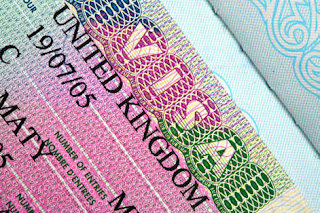A TWES permit will only be granted
to a person who is engaged in a capacity additional to the normal
staffing requirements of the employer.
Once a TWES application is successfully processed, an applicant will need to apply for entry clearance to immigrate to UK.
Employers can quickly establish whether they qualify by visiting the Global Visas online UK visa assessment tool.
Benefits
The TWES visa UK immigration
programme is intended as a route through which staff members from
overseas can work in UK and have access to training and skills in the
UK, which would otherwise be unavailable to them.
The scheme allows such candidates to
obtain a professional qualification with the intention of returning to
their home country to employ the new skills and experience.
In addition, British based companies
with overseas branches may benefit from applying for the Training and
Work Experience Scheme by being able to train their overseas staff in
the UK.
Duration
The duration of the TWES permit
depends on the length of time requested by the sponsoring company, and
is also at discretion of the Home office.
An initial permit for the purpose of
training can be granted for up to five years, while an initial permit
for work experience can be issued for up to two years.
TWES is not intended as a route to
settlement in the UK and unlike other business immigration services such
as the Highly Skilled Migrant Programme or HSMP TWES does not create a
path towards Indefinite leave to remain in the UK (ILR), usually known
as permanent residency in the UK.
Applicants must intend to leave the
UK on completion of their training or work experience. Furthermore, they
will not be eligible for a further TWES visa or a work permit until
they have spent a period of up to two years abroad using the skills they
gained in the United Kingdom.
Training Permits
Permits issued under the training
element of the scheme are designed for people coming to Britain from a
developing country to benefit from training, which would otherwise be
unavailable to them in their own country.
Coming from a developing country is
not a fixed requirement and in most cases, it is possible for candidates
who do not come from such a country to satisfy the criteria.
Training
should lead to a recognised professional qualification or in some
circumstances a specific occupational skill. In all cases, the training
provided must be of use to the candidate in their home country once they
return.
Some poeple also found our info on Visa refusal helpful.
Eligibility
Position
The position for which the TWES
permit is sought must meet NVQ level 3 and above. If the training and
work experience candidate works in a profession they may be required to
be registered with the governing body of that profession. For example, a
doctor must be GMC registered.
Education
The candidate must be able to satisfy one of the following criteria:
* A relevant
degree
.
* A non-relevant degree and one year of experience.
* No degree but three years of relevant experience.
In addition, candidates must be aged between 18 and 54 years and the work undertaken must constitute 30 hours per week or more.
Employer Requirements
In
order to offer training under the TWES scheme, employers must be able
to carry out the proposed training, they must be registered with the
relevant professional body and must provide both a fixed duration for
the training and an itinerary including dates. Like UK work permits,
TWES
applications
are employer led.
Employers must make the application
for each candidate and must ensure that applicants undergoing training
receive appropriate wages and conditions. However, in contrast to a UK
work permit, they must be taken on in addition to existing staff.
The
purpose of a training permit under TWES is not to fill a vacancy but to
provide training to the individual. Candidates will be obliged to
return to their home country once training is completed and must then
spend a period of time outside the United Kingdom before they will be
permitted to re-enter the country through a conventional working permit.
If the TWES visa was granted for
less than 12 months then a 12-month period outside Britain is mandatory.
If the TWES duration exceed 12 months, two years outside Britain will
be required. It is not permitted to switch from TWES to work permits.
Work Experience Scheme
The work experience side of TWES
grants
a visa to applicants, which usually lasts for one year, although on occasion visas for two years are granted.
The
eligibility requirements for both employer and candidate are the same
as those for the training scheme however, the age range in this case is
18 - 35. Once more TWES obliges a successful applicant to return to
their home country when their period of work experience is completed.
Spouse and Dependent Immigration
Spouse immigration is permitted
under TWES and the spouse, unmarried partner, or dependant children of a
permit holder may come to Great Britain for the same period granted to
the permit holder, provided that the latter can support them without
recourse to public funds. Unlike a marriage visa or De Facto Visa,
family immigration under this route is a temporary arrangement and would
not lead to a grant of Indefinite Leave to Remain. Find out further
information on our PBS - Sponsorship licence page.









